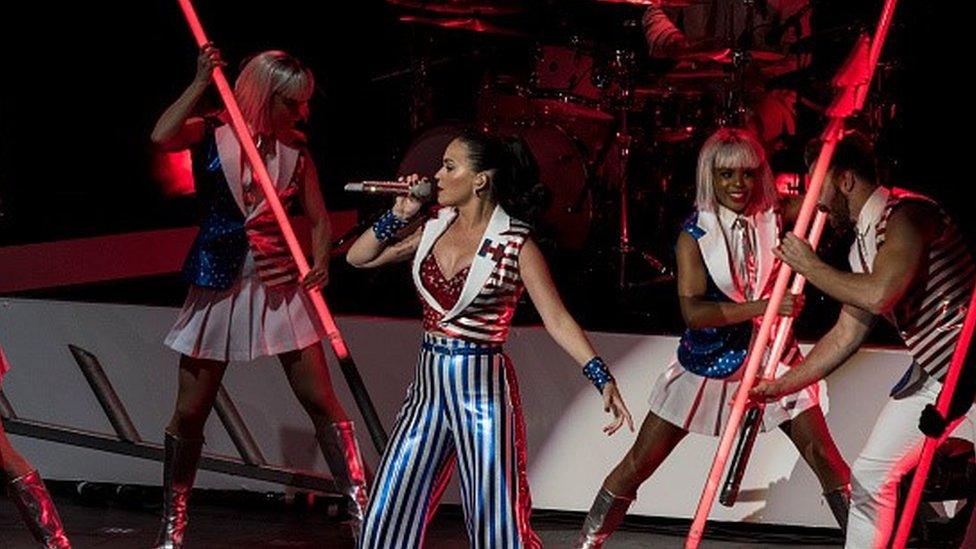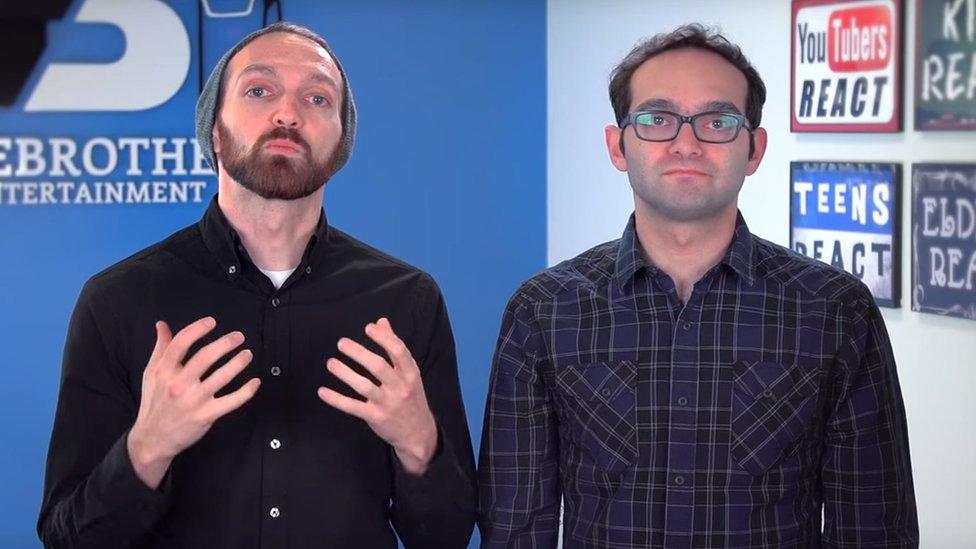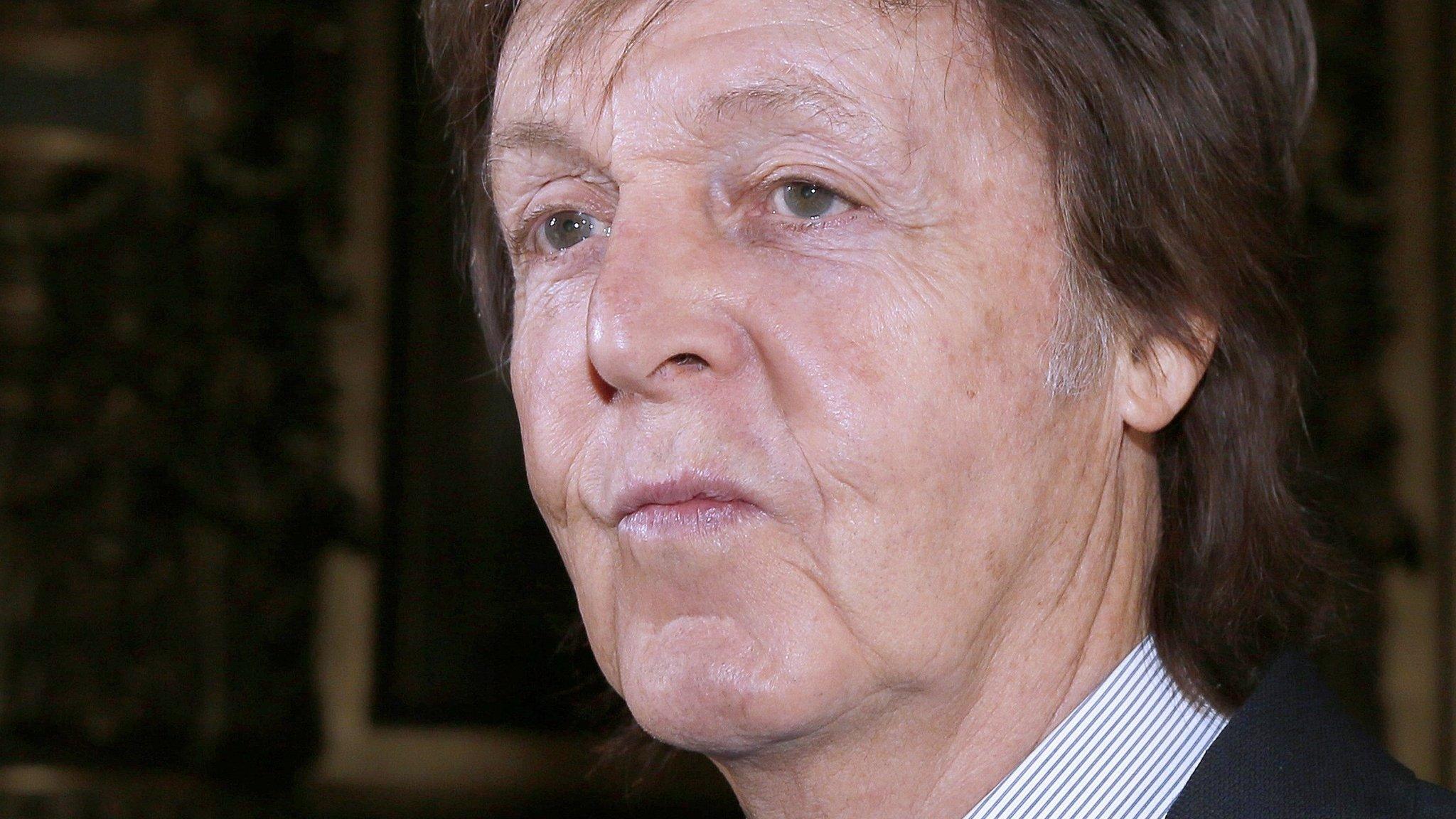Music stars seek reform of online piracy law in US
- Published

Katy Perry, Bryan Adams and Christina Aguilera are among hundreds in the music industry pressing lawmakers to reform US online piracy law.
They have submitted their comments ahead of a review by the federal government's US Copyright Office.
At present internet firms are protected from liability if their users illegally share content online.
The music industry said this allowed tech companies to generate large profits at their expense.
Technological changes
According to the Recording Industry Association of America (RIAA) almost 400 artists, songwriters and music labels have submitted comments ahead of a deadline on Friday.
The Digital Millennium Copyright Act (DMCA) governs intellectual property online and dates back to 1998.
The RIAA described the DMCA as "broken" and "antiquated."
The body takes issue with section 512 of the DMCA, known as the notice-and-takedown provision.
It said the act "forces creators to police the entire internet for instances of theft, placing an undue burden on these artists and unfairly favouring technology companies and rogue pirate sites".
'Whack-a-mole'
The sentiment was echoed in a separate letter from music managers.
Their letter said: "Today, the instant an infringing link is taken down, it is replaced by many more. It's 'whack-a-mole' on steroids in which every time the mole is knocked down, two more pop up, then four, then eight."
The letter from songwriters and artists, which included Katy Perry and Bryan Adams, said the careers of up and coming musicians were threatened because they were not being properly rewarded for their work.
It said the DMCA "has allowed major tech companies to grow and generate huge profits by creating ease of use for consumers to carry almost every recorded song in history in their pocket via a smartphone, while songwriters' and artists' earnings continue to diminish."
'Smart laws'
But the Internet Association, whose members include Facebook, Google, Amazon, and Twitter , disagreed saying online services gave artists a platform for reaching audiences,
"These smart laws allow people to post content that they have created on platforms - such as videos, reviews, pictures, and text. In essence, this is what makes the Internet great.
"The safe harbours enable platforms to operate at the scale necessary to create huge benefits for consumers and creators."
The Copyright Office announced that it was reviewing the so called "safe harbour" or protection provisions in the DMCA in December.
The office has no authority to change the law but it can make recommendations.
- Published2 February 2016

- Published21 March 2016

- Published1 February 2016